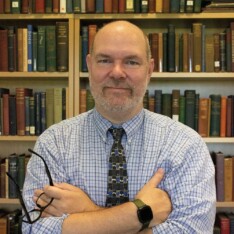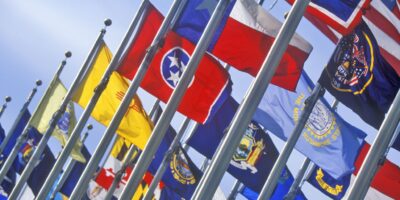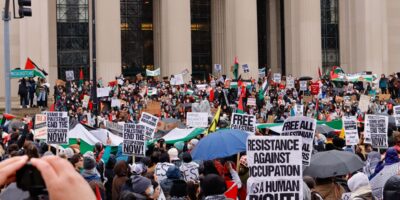A Fate Worse than Death

Los Angeles County has announced that it will extend the COVID-19 lockdowns for three more months. The closure of Broadway has been extended to after Labor Day, and each of the new plans to unlock cities, counties, and states have numerous provisions to impose new lockdowns if certain thresholds are triggered. One wishes that the cautious, painstaking pace taken in re-opening businesses had been exercised in the initial decision to close them down, but that is what makes politicians – informed by unelected advisors – what they are.
I once commented that, in my opinion, the second-worst idea that has ever held mankind in its grasp is that institutionalized violence is required for human life to proceed and improve. The widely-held view that coercion via states is an essential prerequisite for peace and justice is, as I see it, a pernicious concept with detrimental consequences for every human being. It was outside the scope of that small book to express my opinion as to what the worst idea that has ever seized upon humanity is, but the current crisis presents an appropriate place and time to air my view.
Every year, millions upon millions of individuals transmit advance directives to spouses, family members, and trusted executors. Faced with constant pain or discomfort, uncertainty, and mounting financial costs, terminally ill people often make the voluntary, courageous choice to end non-curative palliative care. The decision to liquidate one’s entire stock of possessions and, with a few meager scraps, leave behind their motherland, family, and familiar cultural trappings to face the uncertainties of strange, unaccommodating, and often dangerous new shores is common in the human experience.
We quit comfortable jobs for new challenges which, in retrospect, were foolhardy, we take risks we sometimes can’t calculate (and look back shocked that we did), and we speculate at every juncture. Every moment of every waking instant on Earth, human beings make incredibly difficult choices which champion life over existence. It is something of a cliche, but it bears repeating: life is vastly more than a heartbeat. Dignity, honor, achievement, the fulfillment that comes with interpersonal bonds, and a manifold assortment of other elements compose our esse.
The most baleful idea that has ever seized upon humankind is that which holds that death, the end of life, is the worst possible thing that can happen to an individual. It is a ghastly, destructive mindset at odds with every salient measure of being. Even setting aside the massive human toll of the compulsory isolation — tremendous unseen costs ranging from depression and declining health to rising rates of suicide and divorce — spending indefinite weeks and months in what amounts to home imprisonment is simply too much for many to bear.
This is not an indictment of the temperament that finds comfort or for any other reason is welcoming of days grown to weeks or months of personal and social dormancy. Neither, certainly, is this an endorsement of irresponsible or selfish social conduct in the midst of a considerable disease outbreak. Private firms and communities can, should, and do “police their own,” so to speak.
But the lockdowns, and their crushing of human enfranchisement, are as inhumane and illiberal a domestic policy initiative as any since World War 2. Rising rates of suicide, expanding patronage of black markets, and an increase in individuals willing to take chances they typically wouldn’t in order to escape confinement are proof: for some, the calculus behind choosing between imposed seclusion and freedom is one that limns the very divide between life and death.
I speak of those who desperately seek to reattain lives which, before the stay-at-home orders, accrued pivotal meaning and purpose from any of an innumerable range of pursuits which have essentially been destroyed: the musicians unable to play with their group or ensemble, athletes indefinitely sidelined, entrepreneurs and business managers watching the fruit of their life’s work slowly wither. Fathers and mothers unable to hug their children. For them – for us – the choice between risking an infection and perfectly-insulated decay is no choice whatsoever.
Freedom is non-negotiable, human rights are inalienable, and human beings cannot and will not live in cages, however familiar or comfortably appointed. The emergence of a novel virus changes nothing about the principles.











